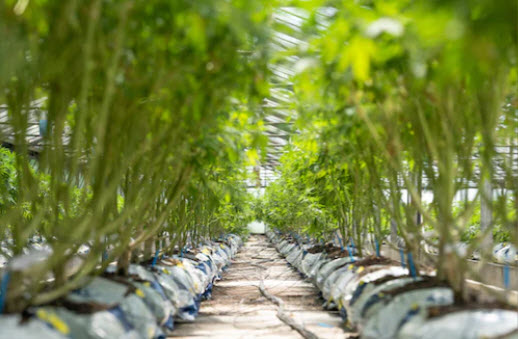As the legal challenges mounting against the company will expose, it appears the Juicy Fields case is, in part, a result of shocking lapses in banking and regulatory failures. However, there were also obvious signs of the scam on the site itself and a few tips to avoid such fraud in the future
While no means a definitive list, the following is a brief overview of ground-floor flags to look for when investing in the cannabis space.
This is an incredibly exciting time in the legalization movement, but just like the building of the railways, or cyberspace, for that matter, scams also abound. This is true in the US especially of late, rather tragically. Hopefully, this will not spread to Europe (as pervasively).
Using these kinds of compliance checks will absolutely save money if not grief down the line. For anyone looking at the German cannabis space right now, in particular, if not the European one, there are a lot of rules that are easy to abide by, as well as required data. If one or more of these pieces of information is missing, this should be an automatic red flag if not a warning sign that something is amiss.
Addresses, Locations, Truly Independent Verification
This is a critical step, particularly if looking at anything based in Germany. There must be accurate contact and bank account information listed on the website itself if it is a registered company. Further, this bank account must also be where one sends any investment money after determining the worthiness of the same. An offshore crowd financing site, or one with an offshore bank, even without a crypto component, is by definition, an instant red flag if not red light. Add cannabis to the mix and it is an absolute no-go, no matter how cool the idea sounds.
Registrations and Certifications
It should go without saying that any site one takes seriously online should also have its SSL certificate in place.
The most important delineation between scams and legit businesses is that they have certifications, and to spare. It is one of the reasons launching any business in the cannabis world is revenue intensive. When involved in any cannabis sourcing, for example, producers must be able to supply proof that they are, variably, at least GACP or EU-GMP certified. Beyond this, there are lab reports and COAs that are a mandatory part of due diligence.
As an investor, it is your right to demand these, with no fancy excuses about how these are “confidential” much less that trips to the physical office are necessary.
Distribution of “medical” and, it is very likely if the current suggestions coming out of Berlin, even recreational cannabis in Germany and probably across Europe, will require some kind of certification and license. This means that any fancy pants idea now circulating in the US about a franchise chain of cannabis stores in Germany in the future will need to show certifications up the ying yang. If there was ever a place for fraud involving tech, cannabis and real estate franchising, the German version of We Work is surely already in its genesis.
Bottom line? Be suspicious people. This is the cannabis space, after all. And so far, the legalization process has been anything but neat, tidy, or indeed anything less than highly volatile.
Securities Law
While there are all sorts of fancy legal opinions right now about what constitutes a “security” in the cannabis world, here is a good guide. This becomes a bit more complicated in the crowd-financing space because European companies are allowed (as of the beginning of this year) to raise 5 million euro before having to register their products or shares as a “security.” In the Juicy Fields case, as a direct recent example, it appears that the company did everything it could to confuse banks and regulators about how much cash it actually took in. That said, it should have been clear to just about everyone by March of this year that a company that was in compliance with European crowd financing regs would probably not sponsor such over-the-top parties. Sure enough, the first regulatory warnings went off on March 30, but it was already a case of too little, too late.
Regardless, a “security” is not only stock in a company (like buying stock in a public cannabis company, registered on an exchange). It could also be, for example, an “investment” in “one of the four “plants” on offer via the Juicy site. These were, beyond what any other descriptions, “future contracts” for plants to be grown in the future and then sold. The fact that the site appeared to discount the price volatility of the market, generally, was another clear sign that this was a fake.
This is where a real knowledge of the cannabis industry and commodities, generally, is a requirement before investing in any such venture.
Being a registered securities advisor is another certification one should look for when ingesting information about “good investments.”
If a cannabis-related enterprise looking for your bucks does not have any of these tell-tale signs of legitimacy, skip it. Even if it does, check the veracity of said claims carefully. It is really easy to cut and paste certificates and logos.
Caveat emptor. This really is a wild west, untamed yet, by legalization. Do your research and then double-check it.
Return on Investment
Right now, savvy investors are staying clear of the cannabis space. There are several reasons for this, including the multiple scams and scandals as well as outbreaks of systematic corruption that have rocked the industry on both sides of the Atlantic of late.
Here is one of the biggest reasons. It is unclear that anyone except short sellers and governments has in fact, made any money in this space over the long term. No matter what criticisms one can throw at the big Canadian cannabis companies, there is also the fact that they also had to weather highly unpredictable and choppy waters in the process of global expansion.
However, here is the bottom line. For this very reason, any venture offering outrageous returns in this industry, in particular, is suspect automatically.
“Love for the plant” should not cloud common sense.









